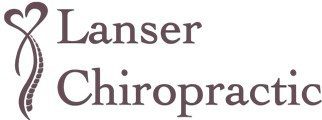 Are you sitting on the sideline for some of your favorite activities due to a shoulder injury that is making many routine activities challenging and painful? Or have you played through telling yourself it will heal or you will address later?
Are you sitting on the sideline for some of your favorite activities due to a shoulder injury that is making many routine activities challenging and painful? Or have you played through telling yourself it will heal or you will address later?
Be warned! It could be an injury to your rotator cuff! Your shoulder injury that may have started off as a minor injury could now be leading to a larger one where the repair process is more substantial.
What Is The Rotator Cuff Exactly?
The shoulder joint’s support and stability are made up by an intricate group of muscles that surround the cap of the shoulder called the cuff.
The rotator cuff itself consists of four muscle groups which lie all around the shoulder blade – in front, either side and on top. These muscle groups fibers then all lead up to the arm bone where they become join the tendons and attach onto the top part of the arm. Their function is to stabilize the shoulder joint while allowing the shoulder to move and turn through a wide range of motions enabling us to perform an incredible variety of functions with our arms.
This structural feat is amazing, but due to this flexibility and mobility, rotator cuff injuries are very common. A small injury can happen in one of the tendons or muscles and can very quickly progress to irritating other adjacent areas due to compensation patterns.
Understanding Rotator Cuff Injuries
Rotator cuff injury is a broad term used to describe any damage to the rotator cuff. Common injuries to the shoulder and rotator cuff include partial tears in the muscles and tendons, which can result from acute injury or repetitive wear and tear over the long term.
Common Symptoms of a Rotator Cuff Injury
The inability to lift the arm at the shoulder out to the side
Pain on putting a coat on or pain when sleeping on that side at night. Radiating pain down the arm towards the elbow or even radiating down into their hands.
The Two Main Causes
In the case of rotator cuff injuries, they are commonly separated into two defining causes which are ‘repetitive micro-trauma’ and ‘traumatic injuries‘.
Repetitive Micro-trauma Injuries: In repetitive use injuries to the rotator cuff, repeated activities cause damage to the rotator cuff tendons. Over time, the tendons wear faster than the body can repair them allowing a micro-tear to develop within the tendons. Most often patients suffering from repetitive strain have complaints of shoulder pain before developing tears in the rotator cuff tendons.
Traumatic Injuries: Traumatic injuries to the rotator cuff are seen after events such as throwing, golf and falling onto an outstretched arm. The traumatic event can cause the tear in the rotator cuff tendons. This type of injury is much less common than repetitive use injuries.
Although partial tear injuries are more commonly suffered, full tears to the tendon are frequently found in older sufferers. A complete tear injury is found more often because as we age, the muscle and tendon tissue of the rotator cuff loses some elasticity. With the loss of elasticity, the blood flow to the mid part of the tendon becomes inadequate. Therefore, healing is slower and degenerative changes are often found.
You Deserve The Best Treatment
The most beneficial treatment process delivers the best results when a Chiropractic physician also provides detailed physical rehabilitative programs targeted to preserve and build muscle strength during the healing process.
Developing a treatment plan individualized to the particular cause of the injury is crucial.
The musculoskeletal specialist, such as a chiropractor and one who specializes or works with specialists in physical rehabilitation will result in the highest quality of care for this injury as the full recommendation will lead to in quickest and fastest healing results.
Physical rehabilitation and rest are the recommended course of action for effective reduction of pain and restoration of full function to the arms and shoulders. As with many other repetitive movement injuries, massage therapy in conjunction with chiropractic care can provide not only pain relief but the highest restoration of range of movement.
Soft tissue treatments such as ART and Graston work to reduce the frequency and symptoms of inflammation, sending fibrous adhesions that inhibit functional movement back into circulation.
Kinesiotape can be beneficial as well by helping correct and maintain proper shoulder positioning throughout the day by stimulating proprioception, increasing your body’s positional awareness.
Ready To Get Back Into The Swing?
Shoulder injuries do not need to be athletically related and can happen at any age.
If you are currently sidelined from the activities you love due to injury, please contact us today so we may help you get back into the game of life!
Our team is experts in the correction and rehabilitation of musculoskeletal injuries including rotator cuff injuries.
For Your Health,
Dr. Wendy Lanser, DC
